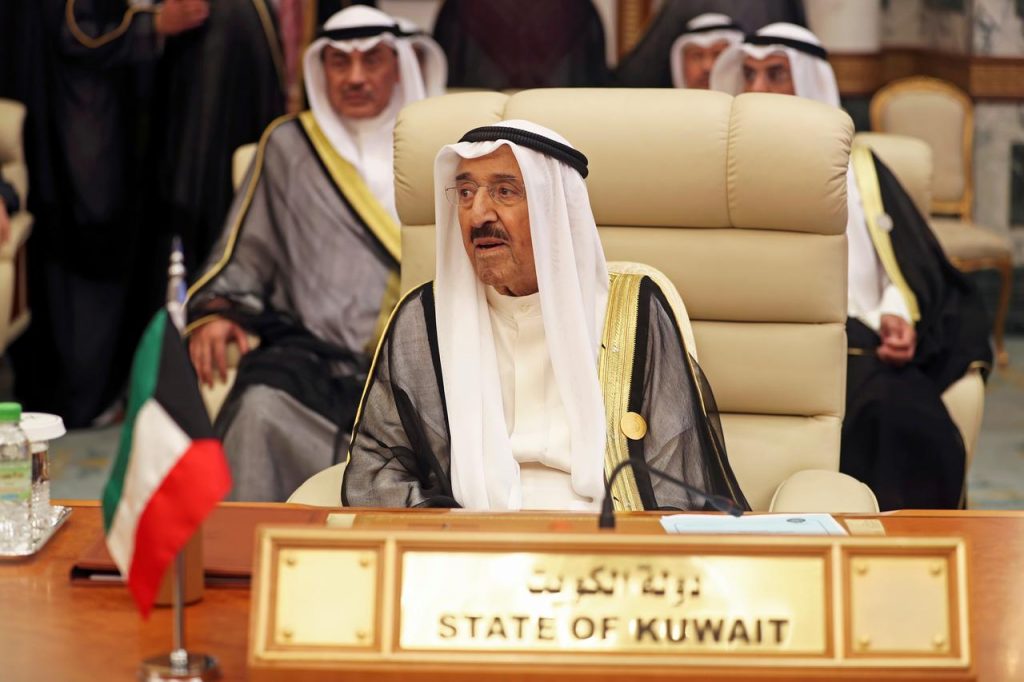
- ARAB NEWS
- 14 Jul 2025

I write these words with a heart filled with sorrow and sadness after hearing of the death of Sheikh Sabah Al-Ahmad Al-Jabir Al-Sabah, the emir of Kuwait, who passed away on Tuesday at the age of 91. As an expat born and raised in Kuwait, I was so lucky to have had the chance to work at the Kuwaiti Embassy in Ankara during his leadership, and meet him in person during his visit to the city in 2017.
The emir has been referred to as the “dean of Arab diplomacy,” “wise man of the region,” and “father of a nation,” among other affectionate, unofficial titles. He lived a full life, during which he celebrated many successes and held all of his country’s key leadership positions: Foreign minister, prime minister and, finally, emir. He will be remembered for his diplomatic patience, excellent mediation skills and humanitarian regional policy.
Following the death of Oman’s Sultan Qaboos in January, the loss of Sheikh Sabah is another huge loss for the Gulf. He was the driving force behind Kuwait’s foreign policy, a wise leader and a respected regional and international mediator. Under his leadership, his country played a major role as a provider of foreign aid, and he was considered by many to be a “global humanitarian leader.” He also guided Kuwait’s neutral and balanced foreign policy.
His diplomatic wisdom and skills on the global stage were such that he was asked to mediate in a number of conflicts. Under the leadership of this veteran mediator, Kuwait acted as a go-between in talks between Pakistan and Bangladesh, Palestine and Jordan, and factions in the Lebanese Civil War. He personally flew from capital to capital, even when he was in his mid-80s, leading rounds of negotiations. He was a symbol of the older generation of Gulf leaders, who placed great importance on personal ties with other rulers.
Under his leadership, Kuwait refrained from intervening in Syria’s civil war. Instead, the country hosted several donor conferences to encourage the provision of humanitarian aid for the Syrian people. I was honored to be invited by the Kuwaiti royal palace to attend the humanitarian donor conference for Syria chaired by the emir in January 2014 in Kuwait City.
His diplomatic wisdom and skills on the global stage were such that he was asked to mediate in a number of conflicts.
Sinem Cengiz
Sheikh Sabah was born in 1929, around the time of the formation of the modern Kuwaiti state. A member of the nation’s royal family, he served as foreign minister from 1963 to 2003, and as prime minister from 2003 until 2006, when he became emir. During his 40 years of service as his country’s top diplomat, he excelled in guiding the development of Kuwait’s international relations and image. Not only was he the world’s longest-serving diplomat, he also held the position during one of the few conventional armed conflicts of the post-Cold War era, when Iraqi forces invaded and occupied his country in 1990 and 1991. In the aftermath of the Saddam Hussein era, under his leadership Kuwait slowly and cautiously rebuilt its relationship with Baghdad.
Throughout their country’s history, the leaders of Kuwait learned many lessons about diplomacy that helped to shape Sheikh Sabah’s pragmatic approach. For example, he earned the title of “dean of Arab diplomacy” because of his efforts to reestablish relations with states that had backed Iraq during the 1990 invasion. He was also the key force behind the formation of the Gulf Cooperation Council in 1981. Perhaps for this reason, he devoted the last few years of his life to keeping the organization intact despite disputes between members.
His diplomatic skills were not only evident in his approach to foreign policy, but also internal politics. For example, Kuwaiti “exceptionalism” was challenged when tens of thousands of people took to the streets in 2012 as Arab uprisings swept through the region. As Kuwait’s ruling emir, he struggled to resolve internal political disputes, the fallout from the protests, and seesawing crude oil prices that chipped away at a national budget that provides cradle-to-grave subsidies. Yet, he had managed to preserve his country’s internal cohesion. In addition, under his leadership women’s rights in Kuwait were expanded and he became a voice for the women of the country.
Sheikh Sabah is succeeded as emir by his 83-year-old half-brother, Crown Prince Sheikh Nawaf Al-Ahmad Al-Jaber Al-Sabah, who is the oldest crown prince in the world. He will be sworn in on Wednesday before the Kuwaiti parliament.
Kuwait is expected to continue to act as a mediator in a turbulent neighborhood. The smoothness of the succession is proof of the maturity of Kuwait’s constitution-based political system. When his death was announced, many countries and leaders were quick to pay tribute to Sheikh Sabah, describing him as a “great leader.” I would like to add my sincere condolences on the passing of an emir whose leadership inspired me to pursue a career focusing on this region. May his soul rest in peace.